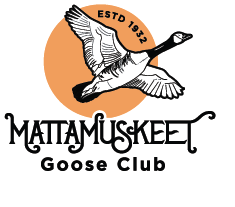A successful duck hunt requires more than just luck; it demands preparation, skill, and a deep understanding of your environment. As the new hunting season approaches, it’s essential to equip yourself with the best strategies and knowledge to maximize your chances of success. Here are the top 5 tips to ensure a successful duck hunting season.
1. Scout Early and Often
Scouting is a fundamental aspect of a successful duck hunt. Knowing where the ducks are and understanding their patterns can make a significant difference in your hunting experience. Start scouting well before the season begins and continue to do so throughout the season.
Key Scouting Tips:
- Identify Roosting Areas: Ducks tend to roost in similar areas each night. Identifying these spots can give you a strategic advantage.
- Observe Feeding Patterns: Early morning and late afternoon are prime feeding times. Watch where the ducks go to feed and plan your hunts accordingly.
- Use Binoculars: High-quality binoculars can help you spot ducks from a distance without disturbing them. Learn more about scouting.
2. Use Effective Decoy Spreads
Decoys are crucial for attracting ducks to your hunting area. The right decoy spread can create a sense of security for the ducks, convincing them to land within your shooting range.
Successful Duck Hunt Decoy Strategies:
- Vary Your Decoys: Use a mix of species and positions to create a more natural and convincing scene.
- Consider the Wind: Place your decoys so that the ducks will land into the wind, which is their natural behavior.
- Adjust Based on Conditions: Be ready to change your decoy spread depending on weather conditions and the behavior of the ducks. Explore decoy strategies.
3. Master Your Calling Techniques
Calling is an art that can significantly enhance your chances of a successful duck hunt. Effective calling can attract ducks to your location, but overcalling can have the opposite effect.
Tips for Mastering Duck Calls:
- Practice Regularly: Regular practice will help you perfect your technique and sound more like a real duck.
- Use Different Calls: Learn and use various calls such as feeding calls, comeback calls, and greeting calls to suit different situations.
- Know When to Call: Timing is crucial. Avoid calling when ducks are already committed to landing, as this can scare them off. Get tips on duck calling.
4. Concealment is Key
Ducks have keen eyesight and can easily spot hunters if they are not well concealed. Proper camouflage and concealment techniques are vital for a successful duck hunt.
Concealment Tips:
- Blend with the Environment: Use camouflage patterns that match the natural surroundings of your hunting area.
- Use a Blind: A well-constructed blind can hide your movements and keep you out of sight from approaching ducks.
- Stay Still: Movement can easily give away your position. Stay as still as possible, especially when ducks are close.
5. Understand and Adapt to Weather Conditions
Weather plays a significant role in duck hunting. Ducks are more likely to move during certain weather conditions, and understanding these patterns can lead to a more successful duck hunt.
Weather Tips for Duck Hunting:
- Hunt on Windy Days: Ducks tend to fly lower and more frequently on windy days, making them easier targets.
- Watch for Cold Fronts: Ducks often migrate ahead of cold fronts. These times can be particularly fruitful for hunters.
- Rainy Days Can Be Good: Light rain can make ducks more active and less wary, increasing your chances of a successful hunt.
Final Thoughts
A successful duck hunt is the result of careful planning, skill, and adaptability. By scouting early and often, using effective decoy spreads, mastering your calling techniques, ensuring proper concealment, and understanding the impact of weather conditions, you can significantly increase your chances of a fruitful hunting season. Remember, the key to success is preparation and continuous learning. Happy hunting!
For more tips and gear to enhance your duck hunting experience, visit Mattamuskeet Goose Club.












